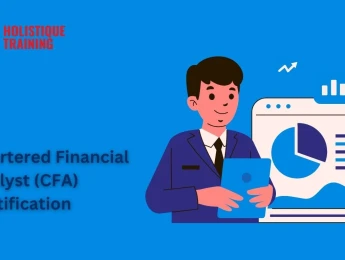Monitoring a company’s finances can be a minefield for anyone. Many data sources, facts and figures, and intricate diagrams and tables help with budgeting.
Microsoft Excel is the spreadsheet component of the Microsoft Office suite. It can help you easily monitor your finances, automate charges and budgeting information, and create easy-to-read diagrams and graphs to support future forecasting and funding applications.
Excel’s advanced formula build-up and storage cells can help you keep track of all money that goes in and out of the business and set up automated changes based on unexpected payments. These project management essentials allow you to schedule employee changes, flag discrepancies, and record sales for future income tracking.
Excel is well known as an amazing recording, reporting, and record management tool that helps keep your accounts and financial statements accurate. Understanding how to convert these fabulous and technologically advanced spreadsheets into usable and attractive graphs and displays can also help convince future investors and stakeholders of your accounting prowess and promote greater trust in your company as a whole.
Upon completion of this course, participants will be able to:
- Understand the advanced workings of Excel to support financial growth.
- Create effective project management strategies using accurate data.
- Discover methods of presenting data in an attractive way to gain buy-in.
- Utilise the financial statement options to automate your processes.
- Link Excel to various other business programs, including Access, Web, Txt, SQL, and Oracle.
- Use macros and conditional formatting to highlight areas of concern.
- Develop more accurate and reliable reporting using Excel tools as a basis.
This course is designed for anyone responsible for creating or automating financial statements or using data to develop future project planning strategies. It would be most beneficial for:
- Chief Financial Officers
- Business Owners
- Accountants
- Project Managers
- Account Managers
- Data Analysts
- Financial Controllers
- Research Professionals
- Financial Directors
This course uses various adult learning methods to aid full understanding and comprehension. Participants will view presentations and video representations to understand how Excel could benefit their businesses. In groups, participants will undertake practical learning exercises to understand various tools for Excel automation.
The groups will then create an interactive forecasting model complete with graphs and diagrams via Excel, which could be used to create project roadmaps for the future and pitch to potential investors.
Day 5 of each course is reserved for a Q&A session, which may occur off-site. For 10-day courses, this also applies to day 10
Section 1: Advanced Excel Tools
- Understanding your consolidation ranges.
- Multiple consolidation changes.
- Dynamic consolidation and considerations for the future.
- Validating your data.
- Scenario manager and project maintenance.
- Looking at pivot tables and spinner data modelling.
- Advanced formulas and their benefits.
- Data tables and keeping them up to date.
Section 2: Data Consolidation Via Spreadsheets
- How your ideal model should work.
- Output and input processing.
- Forecasting or financial statements.
- Financial statements through GL.
- Customer analysis reporting.
- Vendor recognition and providing solutions.
- Your business model and automated action planning.
- Budgeting models.
- Two-dimensional data tables and pivots.
Section 3: Effective Scorecards & Relative Dashboards
- Business reporting tools.
- Flash management and positive dashboard updates.
- One Click usage and developments.
- Dynamic graphs and labelling techniques.
- Scorecards and their benefits.
- Designing your scorecard.
- Building your scorecard metrics and management.
Section 4: Report Development & Data Sources
- External data sources and connections.
- Importing delimited and text files.
- Managing external data sources.
- Access databases.
- SQL development and linking.
- Web data sources and transforming data aspects.
- Understanding the Online Analytical Process (OLAP).
- Report builders and innovative solutions.
Section 5: Modelling & Reporting Using Macros
- Macro edits and reporting.
- Navigation tools and button development for user accessibility.
- Configuration of tools and controls.
- LOOP, IF, and message boxes for dialogue input and control.
- Managing tasks and projects using Excel.
- Tab control and usability.
- Performance management and automation.
Section 6: Future Focus & Automated Change Tracking
- Conditional formatting to flag concerns.
- Mapping your future processes.
- Highlighting risk areas.
- Formula amendments based on change tracking.
Upon successful completion of this training course, delegates will be awarded a Holistique Training Certificate of Completion. For those who attend and complete the online training course, a Holistique Training e-Certificate will be provided.
Holistique Training Certificates are accredited by the British Assessment Council (BAC) and The CPD Certification Service (CPD), and are certified under ISO 9001, ISO 21001, and ISO 29993 standards.
CPD credits for this course are granted by our Certificates and will be reflected on the Holistique Training Certificate of Completion. In accordance with the standards of The CPD Certification Service, one CPD credit is awarded per hour of course attendance. A maximum of 50 CPD credits can be claimed for any single course we currently offer.
- Course Code PF1-121
- Course Format Classroom, Online,
- Duration 5 days














